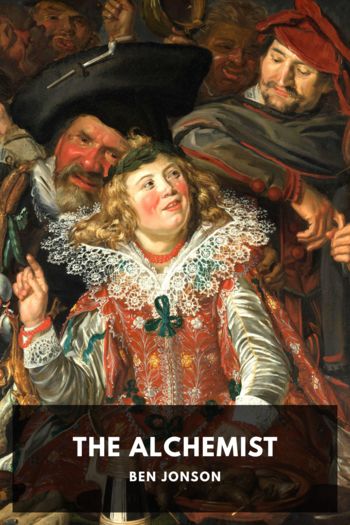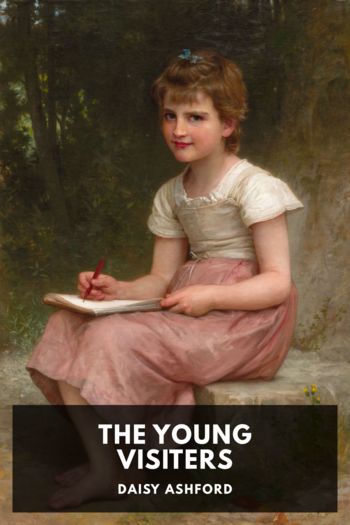Genre Other. Page - 296

Description
The Moon and Sixpence tells the story of English stockbroker Charles Strickland, who abandons his wife and child to travel to Paris to become a painter. First published in 1919 in the United Kingdom by Heinemann, the story is inspired by the life of the French artist Paul Gauguin. It’s told in episodic form from a first-person perspective. The narrator, who came to know Strickland through his wife’s literary parties, begins the story as Strickland leaves for Paris. Strickland’s new life becomes a stark contrast to his life in London. While he was once a well-off banker living a comfortable life, he must now sleep in cheap hotels while suffering both illness and hunger.
Maugham spent a year in Paris in 1904, which is when he first heard the story of Gauguin, the banker who left his family and profession to pursue his passion for art. He heard the story from others who had known and worked with Gauguin. Ten years later Maugham travelled to Tahiti where he met others who had known Gauguin during the artist’s time there. Inspired by the stories he heard, Maugham wrote The Moon and Sixpence. Although based on the life of Paul Gauguin, the story is a work of fiction.

Description
Trying to escape from her boring life, Hortense Daniel meets the mysterious Prince Rénine (or should we say Arsène Lupin?) who enlists her help to solve eight mysteries, starting with one that is for her very close to home. The pair’s travels take them across northern France as they help ease the path of true love, bring thieves and murderers to justice, and eventually to recover something very dear to Hortense’s heart.
The Eight Strokes of the Clock is an Arsène Lupin novel by any other name, with Maurice Leblanc admitting as much in an opening note. Set in the early days of the character’s history, this collection of mysteries has the hallmarks of classic Lupin: a fervent desire to impress, dazzling jumps of logic and an ambivalent belief that the law can provide justice. This English translation was published in 1922 in the same year it was being serialized in France; it was published in novel form there a year later.

Description
In Scarhaven Keep, the playwright Richard Copplestone is pulled into a search for a missing actor which leads him to the town of Scarhaven on the northern English sea coast. As he slowly uncovers the secrets of the residents of Scarhaven, the mystery deepens and reveals much more than a simple missing person.

Description
Such Is Life is an Australian novel written by Joseph Furphy under a pseudonym of “Tom Collins” and published in 1903. It purports to be a series of diary entries by the author, selected at approximately one-month intervals during late 1883 and early 1884. “Tom Collins” travels rural New South Wales and Victoria, interacting and talking at length with a variety of characters including the drivers of bullock-teams, itinerant swagmen, boundary riders, and squatters (the owners of large rural properties). The novel is full of entertaining and sometimes melancholy incidents mixed with the philosophical ramblings of the author and his frequent quotations from Shakespeare and poetry. Its depictions of the Australian bush, the rural lifestyle, and the depredations of drought are vivid.
Furphy is sometimes called the “Father of the Australian Novel,” and Such Is Life is considered a classic of Australian literature.

Description
Commentaries on the Gallic War describes the conflicts between Rome and the region of Gaul in western Europe, as well as the Germanic peoples who lived to the east of the river Rhine, and Britain to the north, in the later years of the Roman republic.
Despite being written in the 3rd person, the commentaries are the memoirs of Julius Caesar himself, and offer a unique insight into these events.
Before the Gallic war began, the Romans had already conquered the region known as Provincia Nostra (literally: “our province”), which is now Languedoc and Provence in the south of France.
Julius Caesar had been one of the two consuls elected in the year 59 BC. The consuls held the highest political office in the Roman republic, but their terms only lasted a year. When his consulship came to an end, Caesar retained power through the position of proconsul, governing Provincia Nostra and two other provinces. This provided Caesar with the necessary command to conduct the military campaigns in Gaul.
Caesar’s victories in Gaul had huge repercussions on the future of Rome: the related work, Commentaries on the Civil War, documents the ensuing conflict between Caesar and Pompey that ultimately led to the end of the Roman republic and the beginning of the Roman empire.

Description
First performed in 1610, The Alchemist is one of Ben Jonson’s greatest comedies. Written for the King’s Men—the acting company to which Shakespeare belonged—it was first performed in Oxford because the playhouses in London were closed due to the plague. It was an immediate success and has remained a popular staple ever since.
The play centers around a con man, his female accomplice, and a roguish butler who uses his master’s house to gull a series of victims out of their money and goods. Jonson uses the play to satirize as many people as he can—pompous lords, greedy commoners, and self-righteous Anabaptists alike—as his three con artists proceed to bilk everyone who comes to their door. They don multiple roles and weave elaborate tales to exploit their victims’ greed and amass a small fortune. But it all comes to a sudden, raucous end when the master unexpectedly returns to London and all the victims gather to try and reclaim their property.

Description
The fortunes of Don Luis Perenna seem set to only increase after the will of his friend, Cosmo Mornington, is read. Perenna stands to benefit by one million francs if he finds the true heir, and by one hundred million if they can’t be found. But after both a detective and a potential recipient of the fortune die in the in the same way as Mornington, Perenna (alias Arsène Lupin) must fight to prove his innocence and discover the real murderer.
The Teeth of the Tiger was published in this English translation in 1914, but wasn’t available in the original French until its serialization in Le Journal in 1920. In the timeline of the series, The Teeth of the Tiger is set after the events of 813, and continues with the rebalancing of Lupin from a god-like genius to a fallible, albeit brilliant, man.

Description
My Brilliant Career is a classic Australian work published in 1901 by Stella Miles Franklin, with an introduction by Henry Lawson. A thinly-veiled autobiographical novel, it paints a vivid and sometimes grim picture of rural Australian life in the late 19th Century.
Sybylla Melvyn is the daughter of a man who falls into grinding poverty through inadvised speculation before becoming a hopeless drunk unable to make a living from a small dairy farm. Sybylla longs for the intellectual things in life such as books and music. She wants to become a writer and rebels against the constraints of her life. For a short period she is allowed to stay with her better-off relatives, and there she attracts the attentions of a handsome and rich neighbour, Harold Beecham. The course of true love, however, does not run smoothly for this very independent young woman.
The author, like many other women writers of the time, adopted a version of her name which suggested that she was male in order to get published. Today, the Miles Franklin Award is Australia’s premier literary award, with a companion award, the Stella, open only to women authors.
My Brilliant Career was made into a well-regarded movie in 1979. Directed by Gillian Armstrong, it features Judy Davis as Sybylla and Sam Neil as Harry Beecham.

Description
Daisy Ashford was just nine years old when she penned (or rather, penciled) The Young Visiters in her notebook. As an adult, she found the manuscript along with other childhood writings and showed them to her literary friends for a laugh. They were so delighted that they passed them around their circle. The unexpected result was a publishing deal, with J. M. Barrie, creator of Peter Pan, writing the preface. So clever was the book that some assumed Barrie himself had written the entire thing as an elaborate hoax.
The story’s “hero” is Alfred Salteena, a polite but bumbling man who hopes to learn the ways of the elite. He is in love with a younger woman, Ethel, but a love triangle with his friend Bernard soon emerges. The characters attend “sumshious” balls, stay in lavish “compartments,” and wear elaborate “get ups,” all of it rendered in Ashford’s original childish spelling. The story reads like a pastiche of high society and even a parody of the Victorian novel.
The Young Visiters was published in 1919 and was reprinted eighteen times in that year alone. It has been adapted into a play, a musical, and multiple film versions. Ashford’s other juvenile writings were later published, including The Hangman’s Daughter, a short novel she considered her finest work. As an adult, she did not continue to write.

Description
Arkady, a university graduate, returns from St. Petersburg to his father’s estate with his mentor Bazarov—a nihilist.
Fathers and Children (also known as Fathers and Sons) is a novel written in 1862 by Russian writer Ivan Turgenev and published in Moscow by The Russian Messenger.
The main theme of the novel is the conflict between two generations—the “fathers,” the liberal serf owners, and the “children,” nihilists who reject their authority and traditions.
Turgenev’s novel also helped popularize the term “nihilism,” especially after the word’s use by an influential Russian nihilist movement in the 1860s.
Despite being harshly criticized in Russia, the novel was very well received in Europe, being praised by influential novelists like Gustave Flaubert and Guy de Maupassant, making it the first Russian novel to gain recognition in the Western literary world.